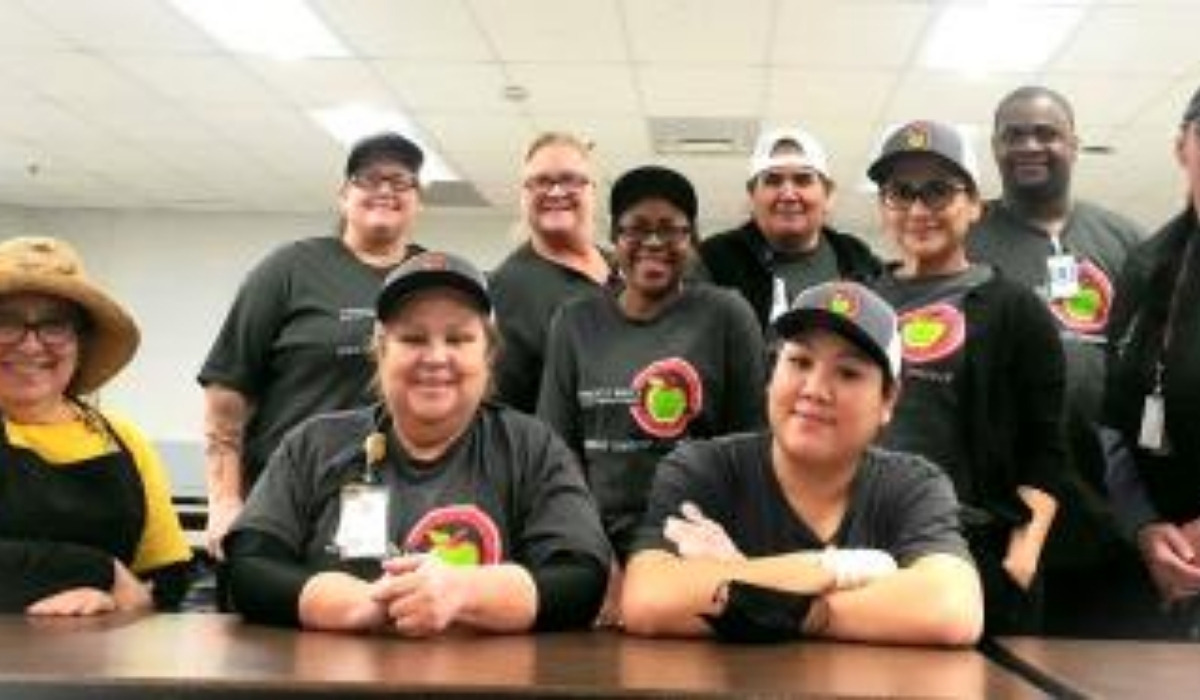Going into the 2023-24 school year, over 90% of school nutrition directors reported cafeteria worker shortages. What was at risk? Less food to serve students and tens of thousands of dollars in lost revenue for already cash-strapped school districts. Desperate, some schools were turning to the controversial hiring of students to serve their classmates lunch.
The Georgia School Nutrition Association (GSNA), the state’s professional organization for its public school food service employees, recognized that a long-term solution was needed—one that not only filled vacancies but also supported workplace inclusion. After learning that only 20% of people with disabilities, including those with autism, are employed, they saw a massive opportunity. That left 80% of an untapped talent pool—individuals who were both willing and able to work but often excluded from employment consideration.
That’s when they reached out to Autism Speaks about Workplace Inclusion Now (WIN), a workplace development program for employers who want to create a more inclusive workplace environment and welcome employees with autism and related conditions.
GSNA selected the Cobb County School District’s Food & Nutrition Services Department (FNS)—which serves over 100,000 students in the Marietta, GA area—to pilot the program. The decision wasn’t just about addressing staffing shortages; it was about leading change. Over a three-month period, cafeteria staff at three schools within the district went through WIN training. The training educated employees about autism and related conditions while providing tools to foster inclusive hiring practices. Among the most effective strategies was revising job descriptions to remove barriers and make responsibilities easier to understand.
“After going through WIN we added ‘We will provide training’ on our job descriptions, a small tweak that made it clear to everyone that we will support them as they learn to do the job,” said Amy Lambert, director of operations for food and nutrition services in Cobb County School District.
This simple change made a profound impact. In addition to updating job descriptions, the district took several extra steps to make the hiring process more accessible. They offered in-person opportunities for job candidates to complete applications with help, understanding how difficult and overwhelming online forms can be. Furthermore, they created a hiring video to visually walk applicants through the cafeteria environment and typical tasks—giving them an idea of what to expect and easing first-day anxieties.
By the end of summer 2023, the three schools were ready. They connected with local employment service providers to reach potential candidates with autism and related conditions. The results were immediate—several long-vacant positions were filled just in time for the start of the school year.
“It turned out these process changes didn’t just help us attract candidates with autism, it also helped those who are less computer literate and English As A Second Language individuals,” Lambert said.
What followed was more than just staffing solutions—it was a transformation in workplace culture. Cafeteria managers were thrilled with their new hires. They praised the new employees as motivated, detail-oriented, and eager to contribute. Lambert later surveyed the cafeteria teams, and the feedback was overwhelmingly positive, highlighting the personal and professional strengths of their new team members:
“Johnny* is a fantastic employee and so full of life! He can complete several tasks independently in the kitchen. He is such a hard worker! Once he finishes one assignment, he immediately asks for another to complete. From his very first day he has been eager to learn all the different positions in the kitchen. Johnny is an asset to our café!”
“Sophie* has honestly been a pleasure to work with. She tries hard and asks questions. She has a schedule and when she comes in, she does a really good job of following it. She will even get the laundry out of the dryer and fold it without being asked. She takes pride in her work and likes things neat and in order. Sophie really has come a long way and I know she will succeed.”
*Names were changed for privacy protection.
Encouraged by the pilot’s success, Cobb County took bold steps to expand the initiative. As of 2024, all 110 schools in the district are now enrolled in the WIN program. Over 800 school cafeteria workers have received training focused on creating inclusive, welcoming environments for employees with autism and related conditions. This comprehensive rollout has not only improved staffing levels but also cultivated a culture of empathy, support, and collaboration.
“We piloted WIN to help fill vacant roles. We got entire staffs that are supported and happy.” added Lambert. “WIN really is about helping everyone in the workplace.”
Through leadership, vision, and a commitment to equity, GSNA and Cobb County School District have turned a staffing crisis into a model of inclusive employment—showing other districts across the country what’s possible when workplaces make room for everyone.
Get the Support Your Child Deserves—Reach Out to Our Experts Today
Every child deserves the right support to thrive, and that’s exactly what we aim to provide. With a team of dedicated professionals, Golden Care Therapy offers individualized ABA therapy plans tailored to meet each child’s unique needs. Our compassionate approach focuses on building meaningful progress through structured, evidence-based methods.
Whether it’s communication, behavior, or life skills, we’re here to help families navigate every step of the journey. If you’re seeking trusted ABA therapy in Georgia, we’re just a call away. Let’s work together to build a brighter future—reach out to us today.



